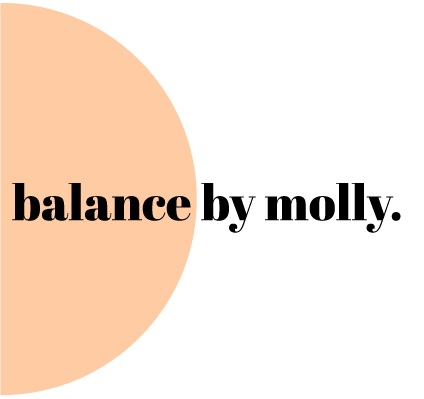As a Health Coach and Nutritionist who works with clients to overcome disordered eating and create their own path to intuitive eating, I get these questions a lot.
How do I know if my relationship with food needs some work?
Are my patterns and behaviors with food disordered?
What is the difference between disordered eating and having an eating disorder?
EATING DISORDERS
According to NEDA, eating disorders are serious but treatable mental and physical illnesses that can affect people of all genders, ages, races, religions, ethnicities, sexual orientations, body shapes, and weights.
Eating disorders are serious, potentially life-threatening conditions that can affect every organ system in the body. They are not fads or phases, and can have serious consequences for health, productivity, and relationships.
This is the discernable difference from disordered eating, wherein Eating Disorders are life threatening due to the potential to affect every organ system in the body. Therefore anyone struggling with an eating disorder needs to seek professional help.
__
The two most common eating disorders are Anorexia Nervosa and Bulimia Nervosa* For warning signs and more information on Anorexia and Bulimia, the NEDA website is a great resource and also includes hotlines under their Help & Support tab to speak with a professional if needed.
Binge Eating Disorder and Orthorexia are two other eating disorders with the latter being only recently identifiable. Both of these can start with disordered eating tendencies that then become life threatening.
Binge Eating Disorder (BED) is characterized by up to 2-hour periods of eating past the point of being full, and often physical uncomfortableness/physical illness, where it cannot be controlled and is often described as “blacking out” and “coming to” followed by feelings of guilt and shame.
The difference between overeating and bingeing is that during a binge you are not present and all emotions are suppressed. When we overeat, we are present in our behavior and are not using food to suppress
The difference between emotional eating and binge eating is that you are present with your emotions and the fact that you are using food to cope or celebrate, for example eating half a bag of cookies because you are stressed or eating three slices of cake at a wedding because you are happy and celebrating. When you binge eat, it is not emotional, and instead the emotions are suppressed by the act.
Binge Eating Disorder can begin with disordered eating tendencies of eating to cope with and then suppress emotions. It is the suppression of emotions that may likely lead to the Eating Disorder.
Orthorexia is a relatively new eating disorder that is centered around the idea of “clean eating” or only eating foods made with ingredients that are pure or unprocessed. Orthorexia tends to be characterized by a morality of only eating healthy ingredients.
Orthorexia can begin, and often stays as, disordered eating. This includes compulsive checking of ingredient lists, unusual interest in the health of what others are eating, spending hours excessively thinking about what food may be served at upcoming events and obsessive following of food or healthy lifestyle blogs/twitter/Instagram account.
Orthorexia may become an Eating Disorder when it becomes harmful to the persons health – cutting out an increasing number of food groups (carbs, sugar, dairy, meat, etc) which can cause digestive disorders or malnutrition.
* Note: I do not work with clients with active Anorexia or Bulimia eating disorders.
DISORDERED EATING
I think it would be helpful to first define what “Normal Eating” is, as written by the Ellyn Satter Institute:
1. Going to the table hungry and eating until you are satisfied
2. Being able to choose food you like and eat it and truly get enough of it – not just stop eating because you think you should
3. Being able to give some thought to your food selection so you get nutritious food, but not being so wary and restrictive that you miss out on enjoyable food
4. Giving yourself permission to eat sometimes because you are sad, happy, or bored, or just because it feels good
5. Mostly three meals a day, or four, or five, or it can be choosing to munch along the way
6. Leaving some cookies on the plate because you know you can have some again tomorrow, or eating more now because they taste so wonderful
7. Overeating at times, feeling stuffed and uncomfortable, and undereating at times wishing you had more
8. Trusting your body to make up for your mistakes in eating
9. Takes up some of your time and attention, but keeps its place as only one important area of your life
10. Flexible; varies in response to your hunger, your schedule, your proximity to food and feelings.
I believe that understanding what normal eating helps to define what Disordered Eating is. Disordered Eating often begins in a conscious, or often unconscious attempt, to solve or camouflage problems in our daily lives. Often someone who first exhibits signs of disordered eating tendencies is also unable to identify or cope with emotions that arise as a result of daily problems.
Disordered eating is first shaped by attitudes, patterns and behaviors around eating that are the antithesis of the list above. Disordered eating usually begins as a result of dieting, whether for one’s own personal desire for weight loss or a coaches or parent’s desire for their weight loss.
Disordered eating might look like the following:
· Eating is about control and not about the celebration and enjoyment of food. To feel good about eating means it could get out of control and this would be bad for weight and body image.
· Following a specific diet. Since dieting means restriction and trying not to eat, your appetite can become unbearably compelling and never satisfied. Meaning appetite or enjoyment of food cannot be trusted.
· Not eating regularly, flexibly and/or reliably. The experience of eating becomes so negative often it is forgotten or ignored, resulting in not trusting your body or know what it truly needs.
· Eating becomes so engrossing that it distracts from any underlying problems in life that are regarded, likely unconsciously, as being even worse.
Again, disordered eating is a distraction. I really want to emphasis that.
Disordered eating is when we move away from normal eating activities. When eating becomes a distraction from stress, anxiety, uncomfortable emotions and other things in life we inherently don’t want to deal with. Therefore, eating to control, restrict or suppress can seem like a better alternative.
Disordered Eating doesn’t mean you have an eating disorder or will develop an Eating Disorder. Again, an Eating Disorder is a mental and physical illness that is life-threatening with serious consequences to your health.
If you believe you are suffering from the symptoms of an Eating Disorder, please contact NEDA for Help & Support.
If you believe that your eating behaviors and patterns have strayed from Normal Eating as defined above, and you find yourself in a cycle of calorie counting, dieting, restricting, emotional eating to suppress, obsessive food thoughts, etc. you can contact me to see if my health coaching services may help to heal your relationship with food.
**Please note that the information in this blog post is based off of my own research and is not meant to diagnose or treat an Eating Disorder. Please consult your physician or mental health provider for any Eating Disorder Treatment.


